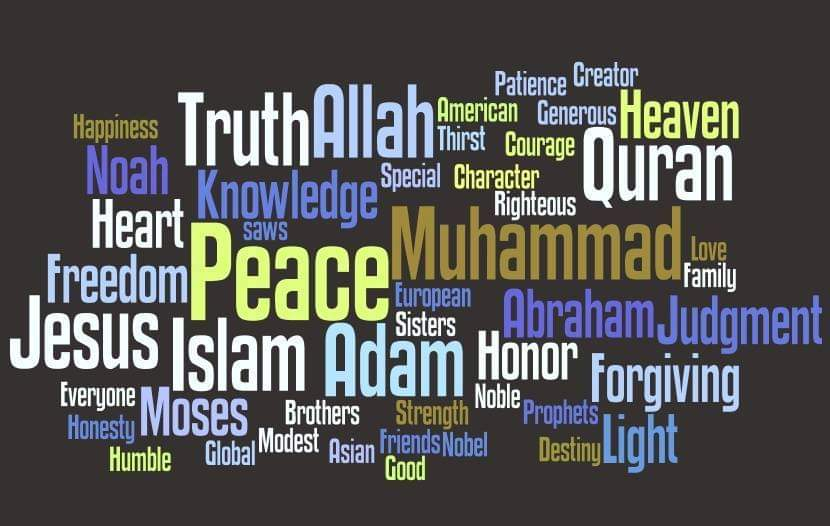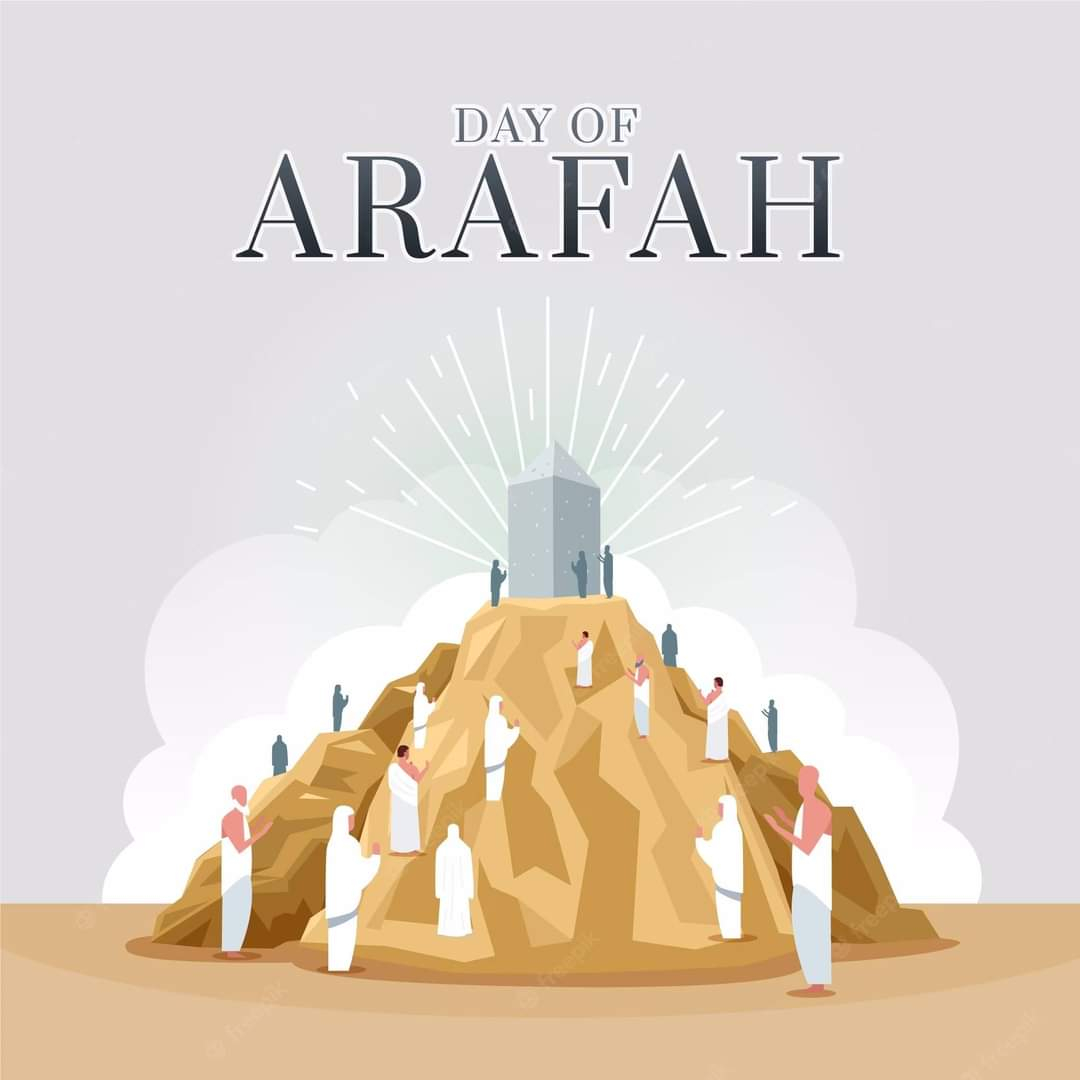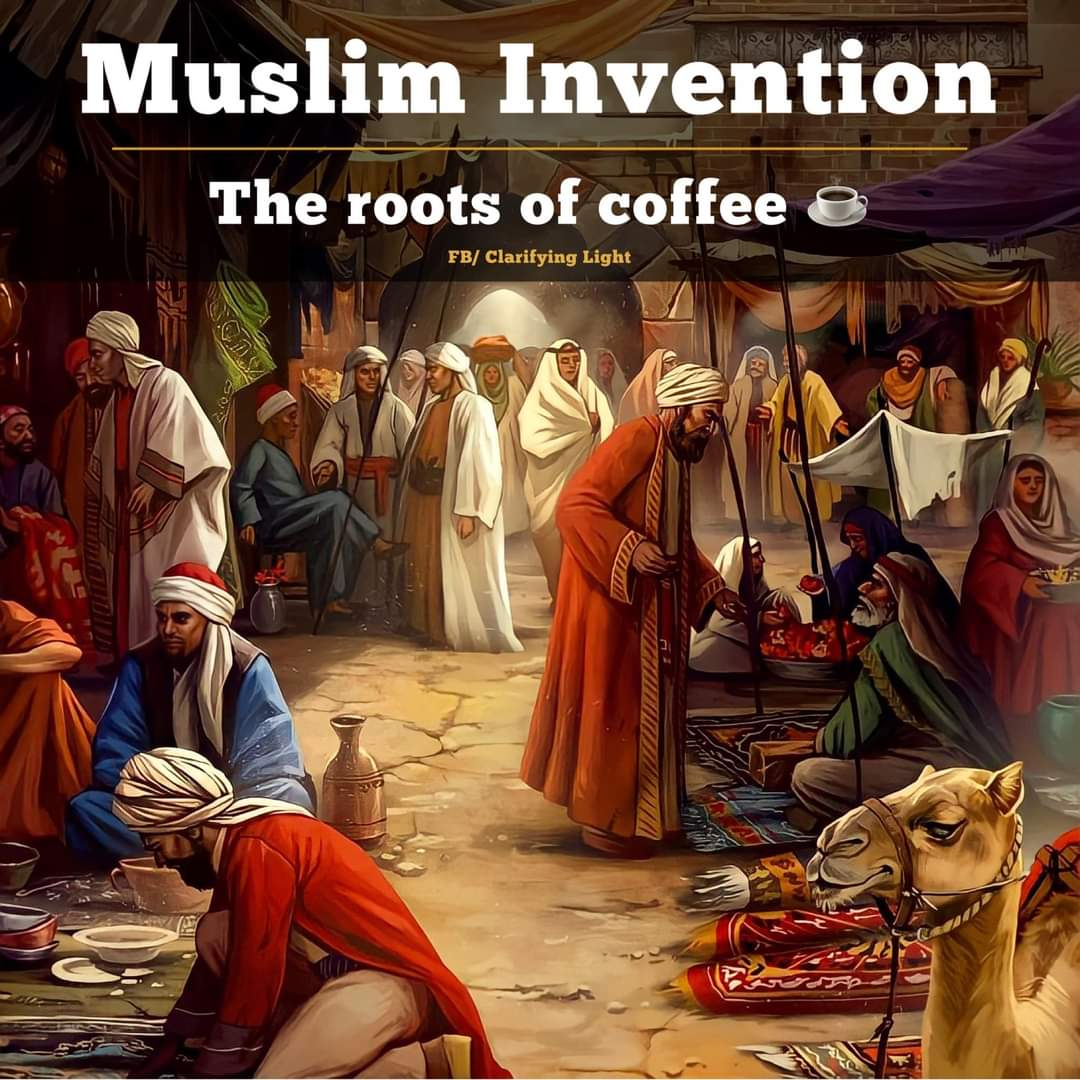O MUSLIM THE MASJID:
The mosques of Allah should only be maintained by those who believe in Allah and the Last Day, establish prayer, pay alms-tax, and fear none but Allah. It is right to hope that they will be among the truly guided. (Qur'an 9:18)
That light shines through houses of worship which Allah has ordered to be raised, and where His Name is mentioned. He is glorified there morning and evening by men who are not distracted - either by buying or selling - from Allah’s remembrance, or performing prayer, or paying alms-tax. They fear a Day when hearts and eyes will tremble, hoping that Allah may reward them according to the best of their deeds, and increase them out of His grace. And Allah provides for whoever He wills without limit. (Qur’an 24: 36-38)
Indeed, We see you ˹O Prophet˺ turning your face towards heaven. Now We will make you turn towards a direction of prayer that will please you. So turn your face towards the Sacred Mosque in Mecca - wherever you are, turn your faces towards it. Those who were given the Scripture certainly know this to be the truth from their Lord. And Allah is never unaware of what they do. (Qur’an 2:144)
Wherever you are ˹O Prophet˺, turn your face towards the Sacred Mosque. And wherever you believers are, face towards it, so that people will have no argument against you, except the wrongdoers among them. Do not fear them; fear Me, so that I may continue to perfect My favour upon you and so you may be rightly guided. (Qur’an 2:150)
Glory be to the One Who took His servant ˹Muḥammad˺ by night from the Sacred Mosque to the Farthest Mosque whose surroundings We have blessed, so that We may show him some of Our signs. Indeed, He alone is the All-Hearing, All-Seeing. (Qur’an 17:1)
Ibne-Abbas (RA) narrates that Rasulullah ﷺ said: Masjids are the houses of Allah on the earth. They shine to the dwellers of the sky, just as the stars shine to the dwellers of the earth. (Tabarani)
Abu Sa’id (RA) narrates Rasulullah ﷺ said: If you see a man frequenting the masjid, bear witness to his Iman. Allah ﷻ says (9:18): Only he will frequent the masjids, who believes in Allah and the Last Day. (Tirmidhi)
Abu Hurairah (RA) narrates that Rasulullah ﷺ said: A Muslim that makes the masjid his abode for Salah and Dhikr, Allah ﷻ is overjoyed with him as a family is overjoyed by the return of an absent relative. (Ibne-Majah)
Abu Darda (RA) narrates: I heard Rasululllah ﷺ saying: The masjid is the house of every pious person who fears Allah ﷻ. For the one who spends most of his time in the masjid, Allah has taken upon himself to comfort him, to bestow Mercy upon him, to make the crossing over Bridge of Sirat easy for him, and to grant him His Pleasure and Paradise. (Tabarani)
Abu Hurairah (RA) narrates that Rasulullah ﷺ said: The parts of the land liked most by Allah ﷻ are its masjids, and the parts of land disliked most by Allah are its markets. (Muslim)
Mu’adh ibne-Jabal (RA) narrates that Rasulullah ﷺ said: Verily, Shaytan is the wolf to man, like the wolf catches sheep; the one which is solitary and the one which stays away from the flock. So avoid staying alone in valleys. Hold firmly to Jamaat (collectiveness), to live with the common people, and to the masjid. (Musnad Ahmad)
Abu Hurairah (RA) narrates that Rasulullah ﷺ said: The people who frequent the masjids are (like) their pegs. The angels are their companions. If they are absent the angels search for them, and if they become sick the angels visit them, and if they are in need the angels help them. He also said: The one, who sits in the masjid, derives at least one benefit from these three: Either he meets a Muslim brother from whom he may get benefit in terms of Deen, or he hears a word for wisdom, or receives a Mercy from Allah for which every Muslim waits for. (Musnad Ahmad)
Abu Hurairah (RA) narrates that Rasulullah ﷺ said: Whoever goes to the masjid in the morning or in the evening, Allah ﷻ prepares for him a good hospitality in Paradise as often as he goes to the masjid, morning or evening. (Bukhari)
Umar ibn Khattab (RA) narrates: I heard Rasulullah ﷺ saying: Anyone who buids a masjid where the name of Allah ﷻ is remembered and (He is praised), Allah will build a palace for him in Paradise. (Ibne-Hibban)
Abu Sa’id Khudri (RA) narrates that Rasulullah ﷺ said: Whoever loves the masjid, Allah ﷻ loves him. (Majma ‘uz-Zawaid)
The mosques of Allah should only be maintained by those who believe in Allah and the Last Day, establish prayer, pay alms-tax, and fear none but Allah. It is right to hope that they will be among the truly guided. (Qur'an 9:18)
That light shines through houses of worship which Allah has ordered to be raised, and where His Name is mentioned. He is glorified there morning and evening by men who are not distracted - either by buying or selling - from Allah’s remembrance, or performing prayer, or paying alms-tax. They fear a Day when hearts and eyes will tremble, hoping that Allah may reward them according to the best of their deeds, and increase them out of His grace. And Allah provides for whoever He wills without limit. (Qur’an 24: 36-38)
Indeed, We see you ˹O Prophet˺ turning your face towards heaven. Now We will make you turn towards a direction of prayer that will please you. So turn your face towards the Sacred Mosque in Mecca - wherever you are, turn your faces towards it. Those who were given the Scripture certainly know this to be the truth from their Lord. And Allah is never unaware of what they do. (Qur’an 2:144)
Wherever you are ˹O Prophet˺, turn your face towards the Sacred Mosque. And wherever you believers are, face towards it, so that people will have no argument against you, except the wrongdoers among them. Do not fear them; fear Me, so that I may continue to perfect My favour upon you and so you may be rightly guided. (Qur’an 2:150)
Glory be to the One Who took His servant ˹Muḥammad˺ by night from the Sacred Mosque to the Farthest Mosque whose surroundings We have blessed, so that We may show him some of Our signs. Indeed, He alone is the All-Hearing, All-Seeing. (Qur’an 17:1)
Ibne-Abbas (RA) narrates that Rasulullah ﷺ said: Masjids are the houses of Allah on the earth. They shine to the dwellers of the sky, just as the stars shine to the dwellers of the earth. (Tabarani)
Abu Sa’id (RA) narrates Rasulullah ﷺ said: If you see a man frequenting the masjid, bear witness to his Iman. Allah ﷻ says (9:18): Only he will frequent the masjids, who believes in Allah and the Last Day. (Tirmidhi)
Abu Hurairah (RA) narrates that Rasulullah ﷺ said: A Muslim that makes the masjid his abode for Salah and Dhikr, Allah ﷻ is overjoyed with him as a family is overjoyed by the return of an absent relative. (Ibne-Majah)
Abu Darda (RA) narrates: I heard Rasululllah ﷺ saying: The masjid is the house of every pious person who fears Allah ﷻ. For the one who spends most of his time in the masjid, Allah has taken upon himself to comfort him, to bestow Mercy upon him, to make the crossing over Bridge of Sirat easy for him, and to grant him His Pleasure and Paradise. (Tabarani)
Abu Hurairah (RA) narrates that Rasulullah ﷺ said: The parts of the land liked most by Allah ﷻ are its masjids, and the parts of land disliked most by Allah are its markets. (Muslim)
Mu’adh ibne-Jabal (RA) narrates that Rasulullah ﷺ said: Verily, Shaytan is the wolf to man, like the wolf catches sheep; the one which is solitary and the one which stays away from the flock. So avoid staying alone in valleys. Hold firmly to Jamaat (collectiveness), to live with the common people, and to the masjid. (Musnad Ahmad)
Abu Hurairah (RA) narrates that Rasulullah ﷺ said: The people who frequent the masjids are (like) their pegs. The angels are their companions. If they are absent the angels search for them, and if they become sick the angels visit them, and if they are in need the angels help them. He also said: The one, who sits in the masjid, derives at least one benefit from these three: Either he meets a Muslim brother from whom he may get benefit in terms of Deen, or he hears a word for wisdom, or receives a Mercy from Allah for which every Muslim waits for. (Musnad Ahmad)
Abu Hurairah (RA) narrates that Rasulullah ﷺ said: Whoever goes to the masjid in the morning or in the evening, Allah ﷻ prepares for him a good hospitality in Paradise as often as he goes to the masjid, morning or evening. (Bukhari)
Umar ibn Khattab (RA) narrates: I heard Rasulullah ﷺ saying: Anyone who buids a masjid where the name of Allah ﷻ is remembered and (He is praised), Allah will build a palace for him in Paradise. (Ibne-Hibban)
Abu Sa’id Khudri (RA) narrates that Rasulullah ﷺ said: Whoever loves the masjid, Allah ﷻ loves him. (Majma ‘uz-Zawaid)
O MUSLIM ➡️ THE MASJID:
✌️ The mosques of Allah should only be maintained by those who believe in Allah and the Last Day, establish prayer, pay alms-tax, and fear none but Allah. It is right to hope that they will be among the truly guided. (Qur'an 9:18)
✌️ That light shines through houses of worship which Allah has ordered to be raised, and where His Name is mentioned. He is glorified there morning and evening by men who are not distracted - either by buying or selling - from Allah’s remembrance, or performing prayer, or paying alms-tax. They fear a Day when hearts and eyes will tremble, hoping that Allah may reward them according to the best of their deeds, and increase them out of His grace. And Allah provides for whoever He wills without limit. (Qur’an 24: 36-38)
✌️ Indeed, We see you ˹O Prophet˺ turning your face towards heaven. Now We will make you turn towards a direction of prayer that will please you. So turn your face towards the Sacred Mosque in Mecca - wherever you are, turn your faces towards it. Those who were given the Scripture certainly know this to be the truth from their Lord. And Allah is never unaware of what they do. (Qur’an 2:144)
✌️ Wherever you are ˹O Prophet˺, turn your face towards the Sacred Mosque. And wherever you believers are, face towards it, so that people will have no argument against you, except the wrongdoers among them. Do not fear them; fear Me, so that I may continue to perfect My favour upon you and so you may be rightly guided. (Qur’an 2:150)
✌️ Glory be to the One Who took His servant ˹Muḥammad˺ by night from the Sacred Mosque to the Farthest Mosque whose surroundings We have blessed, so that We may show him some of Our signs. Indeed, He alone is the All-Hearing, All-Seeing. (Qur’an 17:1)
❤️ Ibne-Abbas (RA) narrates that Rasulullah ﷺ said: Masjids are the houses of Allah on the earth. They shine to the dwellers of the sky, just as the stars shine to the dwellers of the earth. (Tabarani)
❤️ Abu Sa’id (RA) narrates Rasulullah ﷺ said: If you see a man frequenting the masjid, bear witness to his Iman. Allah ﷻ says (9:18): Only he will frequent the masjids, who believes in Allah and the Last Day. (Tirmidhi)
❤️ Abu Hurairah (RA) narrates that Rasulullah ﷺ said: A Muslim that makes the masjid his abode for Salah and Dhikr, Allah ﷻ is overjoyed with him as a family is overjoyed by the return of an absent relative. (Ibne-Majah)
❤️ Abu Darda (RA) narrates: I heard Rasululllah ﷺ saying: The masjid is the house of every pious person who fears Allah ﷻ. For the one who spends most of his time in the masjid, Allah has taken upon himself to comfort him, to bestow Mercy upon him, to make the crossing over Bridge of Sirat easy for him, and to grant him His Pleasure and Paradise. (Tabarani)
❤️ Abu Hurairah (RA) narrates that Rasulullah ﷺ said: The parts of the land liked most by Allah ﷻ are its masjids, and the parts of land disliked most by Allah are its markets. (Muslim)
❤️ Mu’adh ibne-Jabal (RA) narrates that Rasulullah ﷺ said: Verily, Shaytan is the wolf to man, like the wolf catches sheep; the one which is solitary and the one which stays away from the flock. So avoid staying alone in valleys. Hold firmly to Jamaat (collectiveness), to live with the common people, and to the masjid. (Musnad Ahmad)
❤️ Abu Hurairah (RA) narrates that Rasulullah ﷺ said: The people who frequent the masjids are (like) their pegs. The angels are their companions. If they are absent the angels search for them, and if they become sick the angels visit them, and if they are in need the angels help them. He also said: The one, who sits in the masjid, derives at least one benefit from these three: Either he meets a Muslim brother from whom he may get benefit in terms of Deen, or he hears a word for wisdom, or receives a Mercy from Allah for which every Muslim waits for. (Musnad Ahmad)
❤️ Abu Hurairah (RA) narrates that Rasulullah ﷺ said: Whoever goes to the masjid in the morning or in the evening, Allah ﷻ prepares for him a good hospitality in Paradise as often as he goes to the masjid, morning or evening. (Bukhari)
❤️ Umar ibn Khattab (RA) narrates: I heard Rasulullah ﷺ saying: Anyone who buids a masjid where the name of Allah ﷻ is remembered and (He is praised), Allah will build a palace for him in Paradise. (Ibne-Hibban)
❤️ Abu Sa’id Khudri (RA) narrates that Rasulullah ﷺ said: Whoever loves the masjid, Allah ﷻ loves him. (Majma ‘uz-Zawaid)
0 Commentarii
0 Distribuiri






